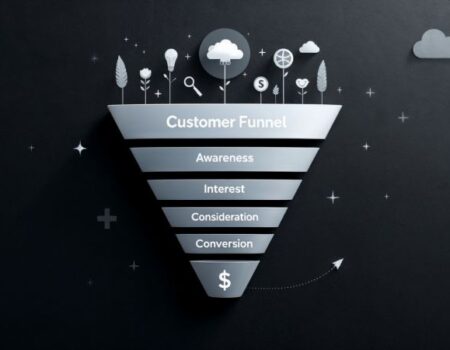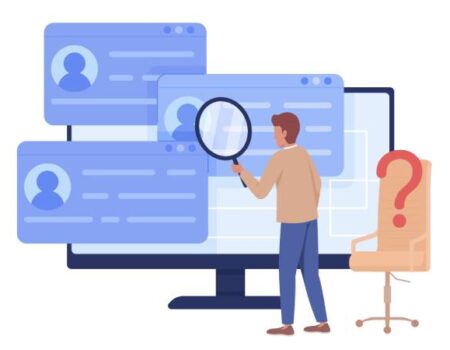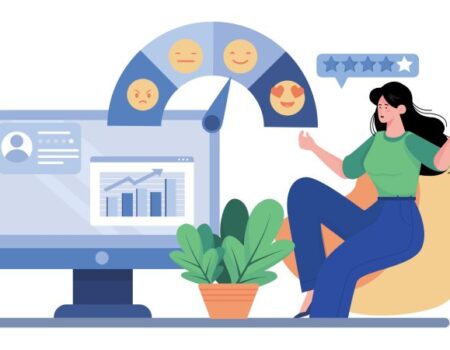11+ Real-World AI Agent Examples
Artificial Intelligence (AI) agents function like the unseen crew behind a theatrical performance, operating autonomously to ensure seamless user experiences.
These agents have been integral to various technologies for years, gaining significant recognition only recently. This article explores real-world instances of AI agents across diverse sectors.
AI Agent Examples in Real-Life
- Personalized Recommendation Systems
- Adaptive Pricing Strategies
- Advanced Web Navigation
- Enhanced Customer Service
- Automated Content Moderation
- Optimized Advertising Campaigns
- AI-Powered Recruitment Tools
- Self-Driving Vehicles
- AI in Stock Market Trading
- Streamlined Healthcare Administration
- Proactive Fraud Prevention
- Intelligent Manufacturing Robots
When platforms like Netflix suggest movies or shows tailored to your preferences, AI agents are at play. These agents analyze your viewing history and ratings to identify patterns, enabling the platform to offer content that aligns with your tastes. Similar personalization techniques are employed by services such as Amazon, YouTube, and Spotify to enhance user engagement.
Industries like hospitality, ride-sharing, and aviation utilize AI agents to implement dynamic pricing models. These systems adjust prices in real-time based on factors like demand, supply, and user behavior. For example, ride-hailing services may increase fares during peak hours or special events, with AI agents evaluating these variables to determine optimal pricing.
Companies like OpenAI and Google have developed AI agents—such as Operator and Mariner—that can autonomously browse the internet to assist users effectively. These agents comprehend the need to interact with web elements, facilitating tasks like populating shopping carts and retrieving information. Demis Hassabis, overseeing Google’s core AI lab, highlighted to The New York Times that these agents can “understand that it needs to press a button to make something happen” and “take action in the world.”
AI agents are revolutionizing customer support by automating tasks such as prioritizing inquiries, directing tickets to appropriate departments, updating customer records in CRMs, and generating responses. This automation streamlines support processes, allowing human agents to focus on more complex issues. For instance, AI-powered chatbots can handle routine questions, improving response times and customer satisfaction.GeeksforGeeks
Platforms reliant on user-generated content, including social media sites, employ AI agents for content moderation. These agents detect and manage content that violates community guidelines by flagging, reviewing, and categorizing inappropriate material. For example, YouTube uses AI systems to identify videos containing copyrighted music, automatically muting or removing such content to maintain compliance.
Advertisers leverage AI agents to enhance the effectiveness of their campaigns. These agents analyze historical data and performance metrics to make real-time adjustments, such as emphasizing high-performing ad versions or customizing content based on user behavior. This approach not only saves costs but also boosts return on investment (ROI).
Recruitment platforms are integrating AI agents to automate tasks like sourcing candidates, scheduling interviews, and following up with applicants. This automation significantly reduces the time recruiters spend on administrative duties, allowing them to focus more on engaging with potential hires and strategic planning.
Autonomous vehicles, such as those developed by companies like Waymo, rely heavily on AI agents to navigate safely. These agents process real-time data from sensors and historical driving information to make decisions regarding vehicle control, adapting to traffic conditions, and ensuring passenger safety.
The financial sector utilizes AI agents to monitor market conditions and execute trades aligned with predefined investment strategies and risk profiles. These agents analyze vast amounts of data to identify trading opportunities, enabling both individual investors and institutions to respond swiftly to market changes.
Healthcare organizations are adopting AI agents to manage administrative tasks, including scheduling appointments, analyzing health data for public health initiatives, reviewing electronic health records (EHRs), structuring clinical notes, and predicting resource shortages. For example, AI-driven platforms can assist in organizing patient information, allowing healthcare providers to focus more on patient care.
Financial institutions employ AI agents to monitor transaction activities and detect anomalies indicative of fraudulent behavior. These agents analyze spending patterns and flag unusual transactions, prompting actions such as freezing accounts or alerting customers to verify the legitimacy of the activity.Medium
Manufacturing companies are integrating AI-powered robots into their production lines to enhance efficiency. These robots are programmed to perform tasks such as assembly and quality control, adjusting their actions based on real-time data and historical trends. This collaboration between humans and robots optimizes production processes and allows human workers to focus on more complex tasks.
Partner with our Digital Marketing Agency
Ask Engage Coders to create a comprehensive and inclusive digital marketing plan that takes your business to new heights.
Contact Us
As demonstrated, AI agents are seamlessly integrated into various aspects of daily life and industry operations, often operating behind the scenes to enhance efficiency and user experiences.








